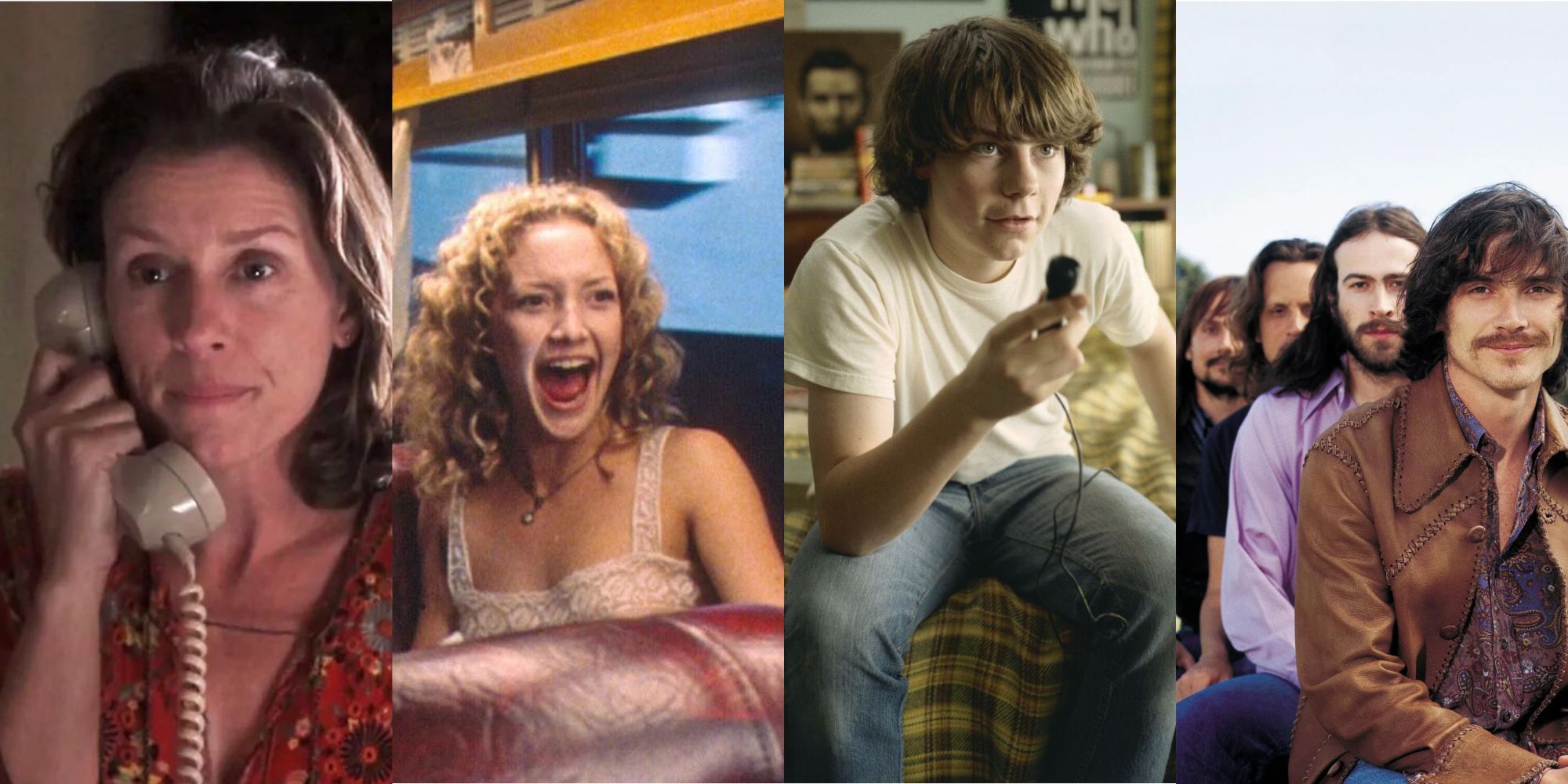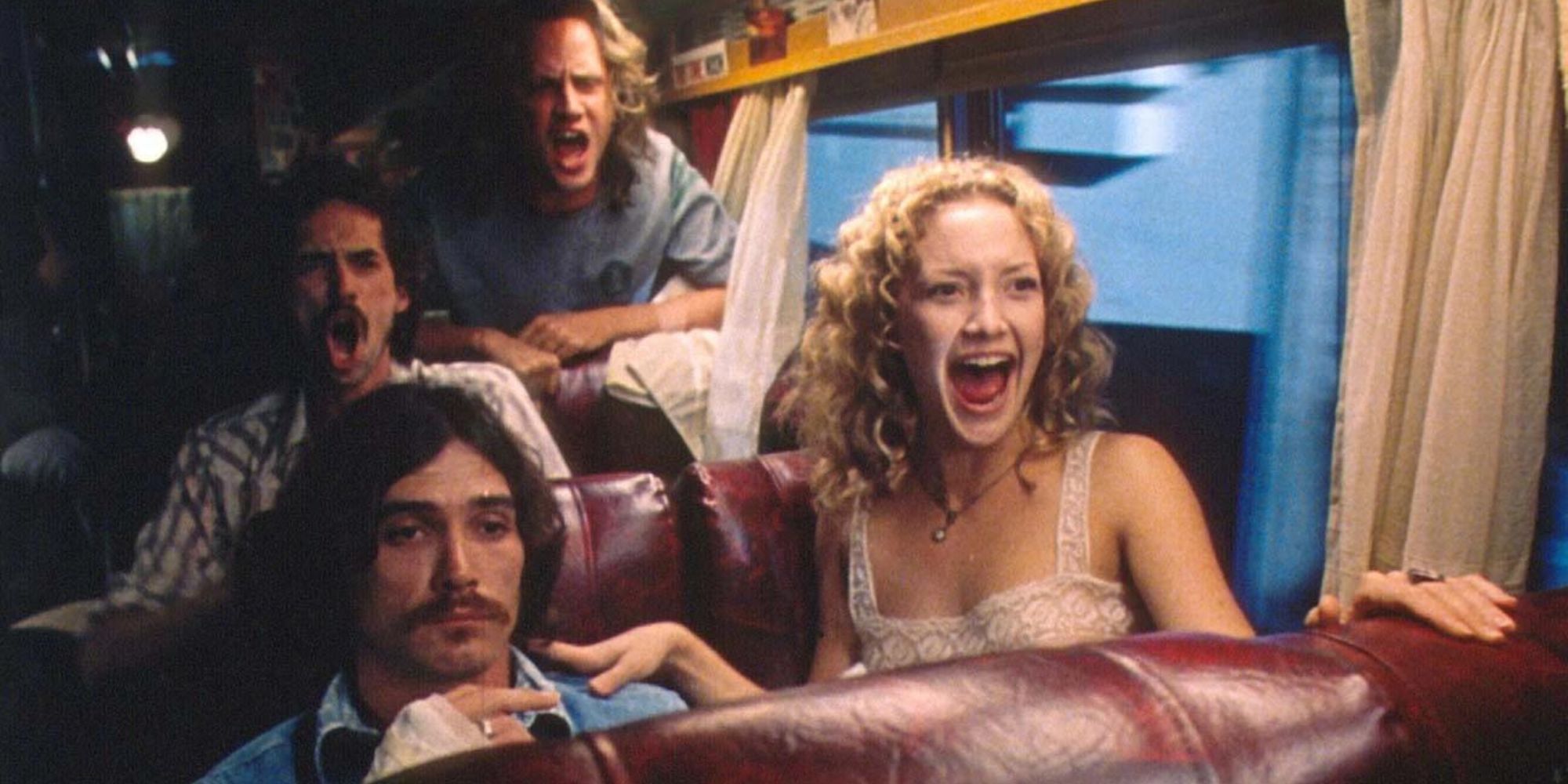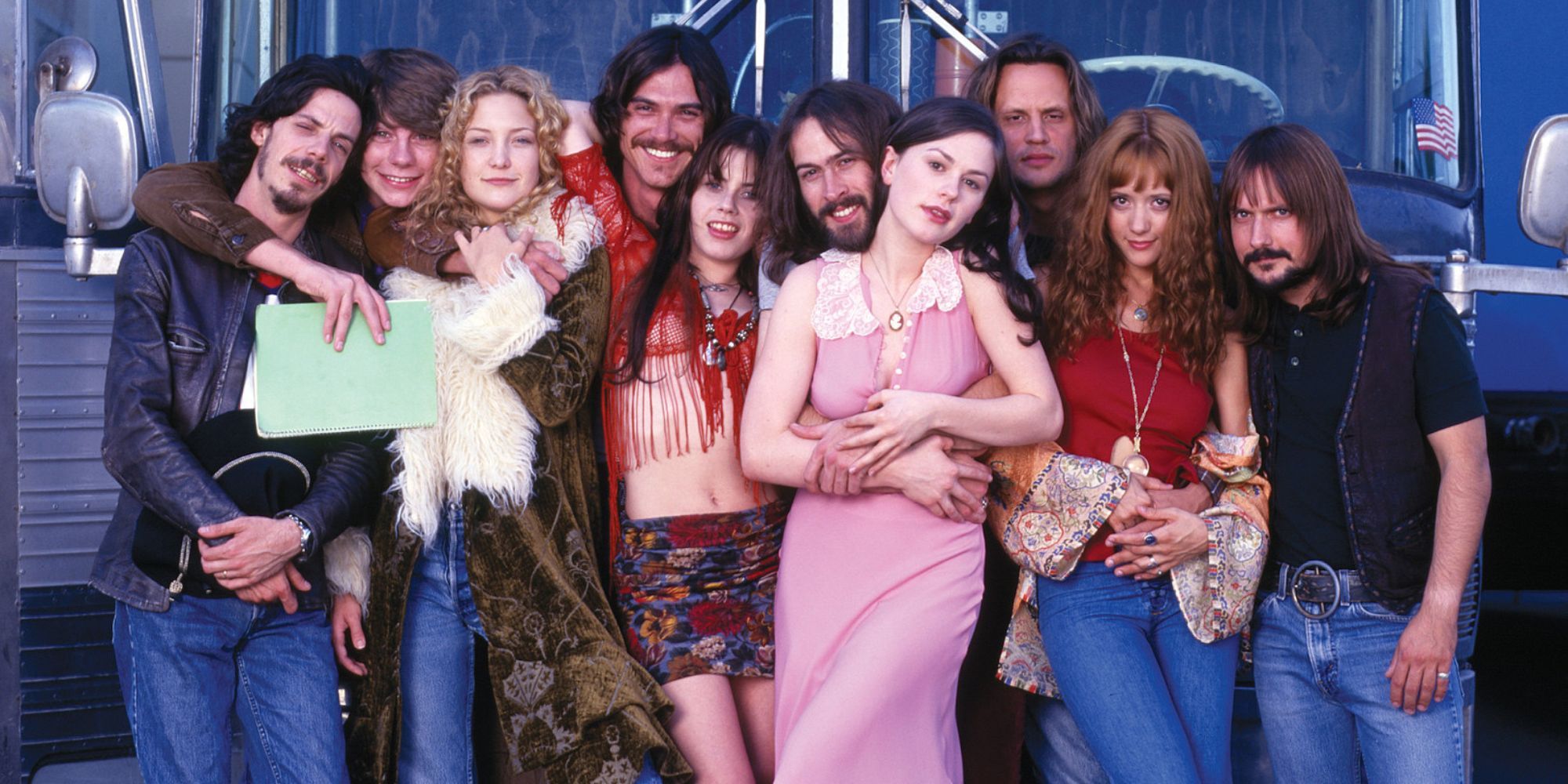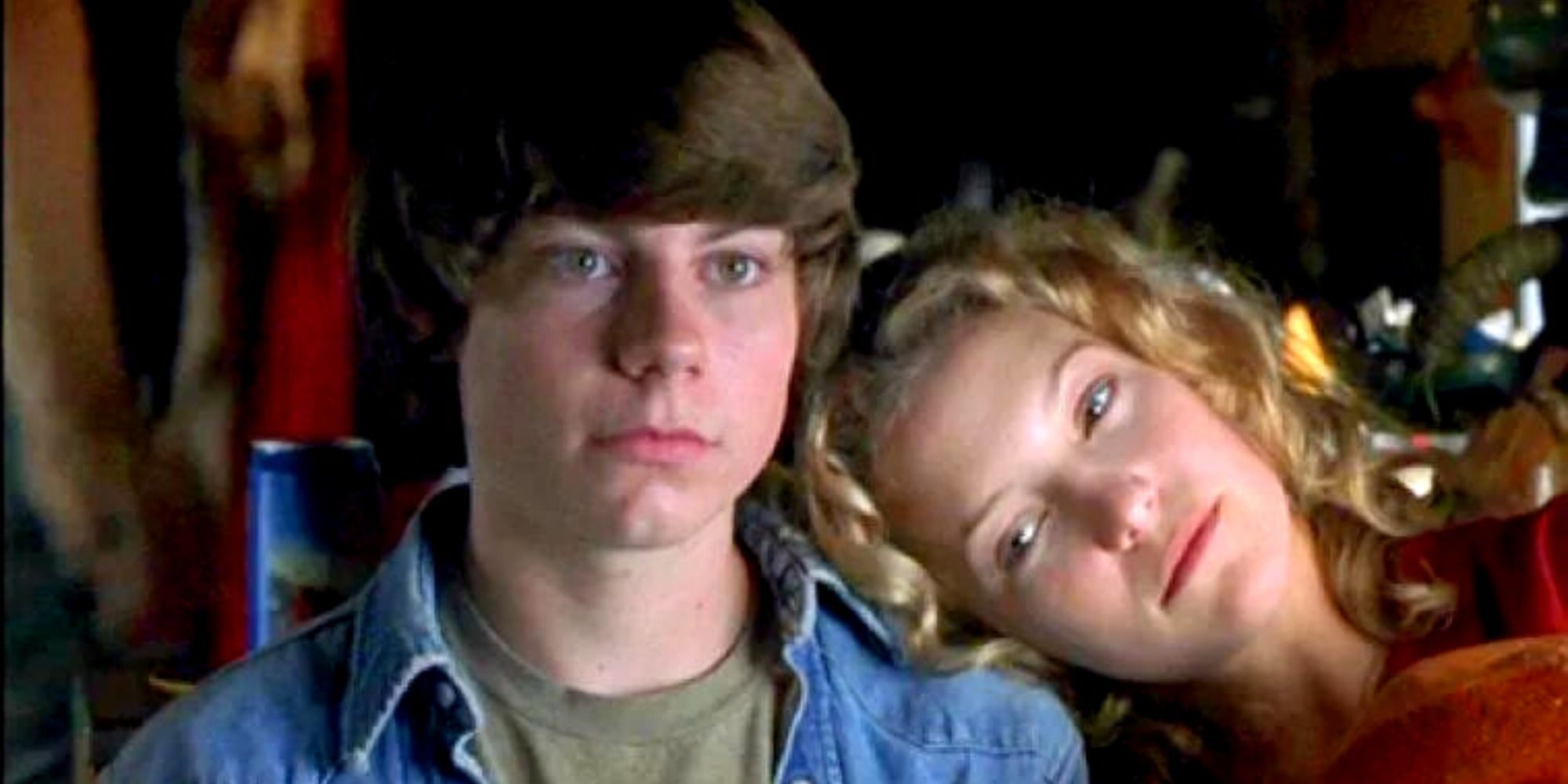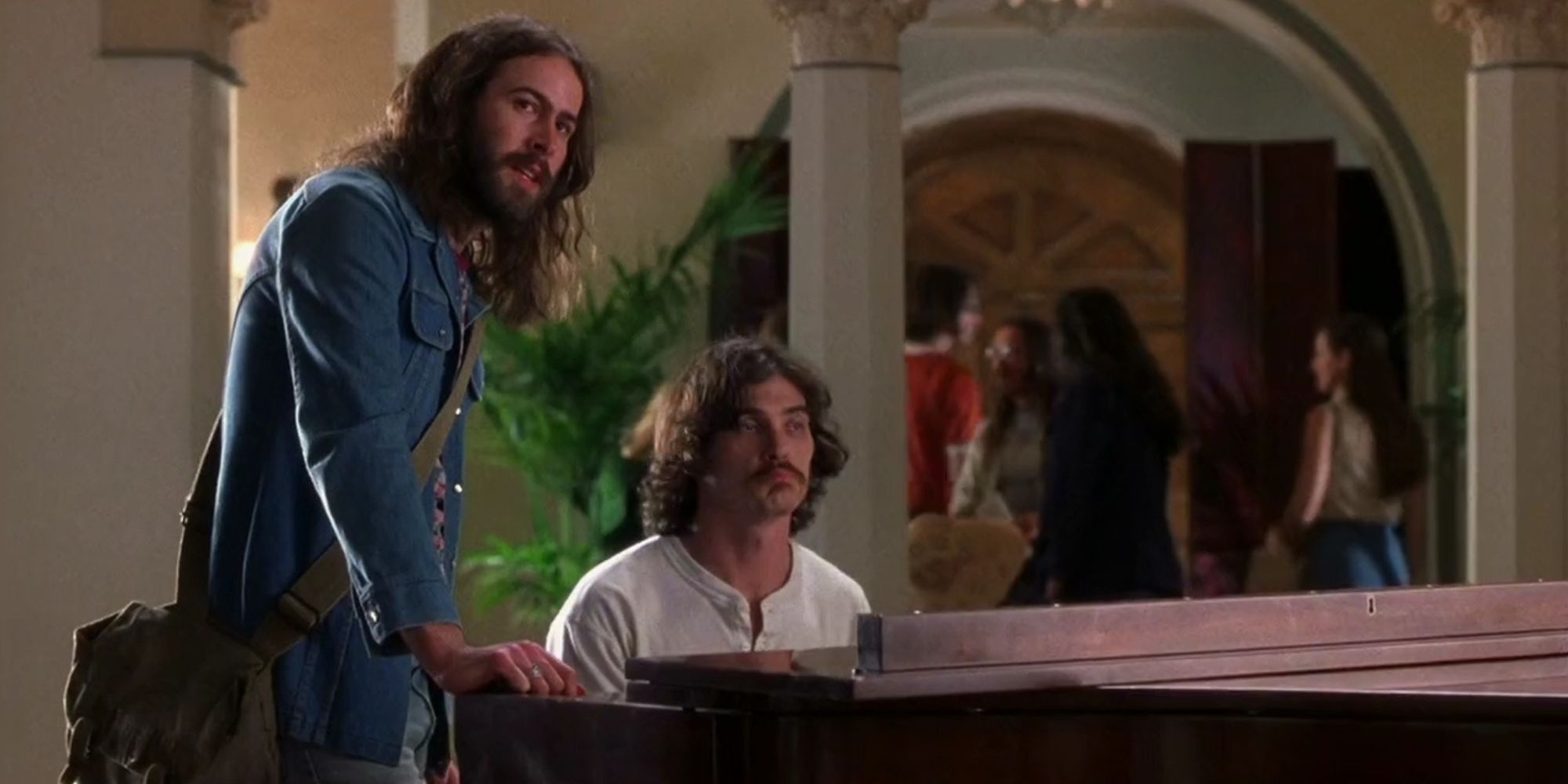Look no further than his repeated attempts to repeat its magic between Elizabethtown, the show Roadies, and now an upcoming musical to understand why Almost Famous may have been Cameron Crowe’s best movie. Its depiction of youth, culture, and the mindset that pervaded rock and roll in 1973 was lauded by critics, won Oscars, and was named the best film of the year by many (Roger Ebert for one).
But Almost Famous isn’t just a timepiece for the 70s; the film arrived during the precipice of a 2000s classic rock resurgence following a 90s that was obsessed with alternative and grunge. A film centering around fandom whether it be High Fidelity or Pirate Radio and School of Rock (films that may not have existed without it) could sell a movie and bands like Zeppelin, The Stones, and The Who were being discovered by the children of who they were originally intended. Almost Famous provided context for an era of teenagers who were trying to understand the ideology of 70s youth and its period-accurate music acted as a gateway.
It’s Autobiographical
The film truly feels as if its director had a deep respect and adoration for his subject, which would make sense since he actually lived it. Crowe based William Miller (Patrick Fugit) and the film on his own experiences as a writer for Rolling Stone, his rise to maturity, and how his interview subjects would question his intentions. His first cover story covering The Allman Brothers put him on the road for three weeks with the group at the age of 16 and the film’s basis comes from Gregg Allman’s retraction and eventual corroboration of a deeply personal interview he gave to Crowe regarding the death of his brother and the existential threat of life on the road.
Holding back from a 4-hour original cut, Crowe’s film depicts a post-Vietnam, pre-Watergate 70s that refuses to question its purpose. Shots of hotel floors booked out by the band and the unity of backstage at concerts are shot with convivial warmth and its characters are framed with adoration. The records Miller flips through after inheriting them from Anita are from Crowe’s actual collection and the director used the mixtapes of his youth as reference points and pairs needle drops expertly informed by his emotions at the time. Further, the foray into rock journalism is shifted with irony in its 1970s setting; for one, the self-imposed increase of $1000 from $700 for a 3000-word feature even before inflation would make most writers in the internet era millionaires.
The Cast
Normally opting for singular character-focused dramas like Say Anything, Jerry Maguire, or Vanilla Sky, Cameron Crowe mounted one of his largest and most impressive ensembles for Almost Famous. The film features a wide range of impressive talent with its newcomers and veterans. Crowe catches a variety of future stars before they take off – Zooey Deschanel, Rainn Wilson, Jay Baruchel, Eric Stonestreet, and Jimmy Fallon. The film’s entourage is captured with genuine chemistry. Patrick Fugit leading in his film debut has an emotional arsenal needed to lead the picture, concealing inward frustration and adolescent stress but also a smile that tells so much about his motives.
Most famously, the film launched Kate Hudson’s career whose status as Goldie Hawn’s daughter made her performance highly-awaited. Philip Seymour Hoffman’s Lester Bangs, the veteran rock critic and self-proclaimed master of the uncool works directly off of Fugit’s integrity. Frances McDormand as William’s mother is hilarious, compassionate, and high stress sometimes all within the same scene. Perhaps the most impressive dynamic is how convincing Stillwater is as a band that performs and sounds like the real thing while Billy Crudup and Jason Lee both completing some of their career-best work expose the singer-guitarist trope behind the scenes. To play the band, the actors rehearsed four hours a night, five nights a week, for six weeks in a rock camp led by Peter Frampton.
The Music
As a quintessential “rock film,” Almost Famous should be expected to deliver great music and there is a tonne of it. It features original music played by Stillwater, an original score of acoustic guitar pieces written by Crowe’s then-wife Nancy Wilson of Heart, and over fifty needle drops amounting to a music budget of over $3.5 million.
While the “Tiny Dancer” bus singalong has itself become iconic and narratively important as the moment where music itself helps the band overcome an incident that nearly tears them apart, this does not even begin to scratch the surface. Led Zeppelin allowed for the rare right to license their music with a whopping five songs. Rod Stewart’s "Every Picture Tells a Story" conveys genuine wonder and joy as William enters a new world while Joni Mitchell’s “River” was so effective it managed to bring a tear out of Kate Hudson caught in the final film. The Beach Boys’ underrated psychedelic “Feel Flows” acts as a love theme while Stevie Wonder’s pop ballad My Cherie Amour eerily scores a medical procedural. The soundtrack would go on to win a Grammy for Best Compilation Soundtrack Album.
It’s Full of Heart
It’s perhaps his most endearing film, not only understanding the cornerstones of fandom but also youth in general. Almost Famous is a coming-of-age story about a 14-year-old whose experiences are fast-tracked. Discovery is pictured with exuberance and its humor holds a worn-in feel, not through large sight gags or set pieces but instead, recollections told to the younger generation with glee. Its warm tones and its music, even its sheer quotability posit its story through a sentimental lens despite William going through a hard time.
Crowe’s understanding of the relationships between his characters renders a film that is sincere on its subject. The dynamic between William and his mother who is devoted to trusting and supporting her son after things hit the fan with her daughter has a major emotional payoff when they are reunited in the final act of the film. Stillwater properly resembles a band of their era full of showmanship and ego but also humanity and whether through camaraderie or infighting hold a genuine brotherhood.
It Nails the Fan Experience
Thematically, Almost Famous is a film that has a deep understanding and respect for the idea of music fandom. Crowe presents it as the need to feel like we belong, specifically to the world being presented through song and shared with others who hold this feeling. William Miller (Patrick Fugit), practically ostracized by his peers at 14 is desperate for acceptance and finds himself following the band through a multi-city tour. He is told directly to not befriend the rock stars he must report on to maintain objectivity, but this seems impossible since his love for them is so innate and his solitude is so long-suffering. Music opens up a world outside the strict lines of school and family and external environments seem so bored that they celebrate Christmas twice a year.
Crowe fills the film with other characters, that unlike William live without direction and invest themselves in a scene that exists to be both creative and debaucherous, and to embrace a faction of youth that most adults do not. William’s desire for Penny Lane (Kate Hudson), a character written to embody the intimate fan experience and the dedication one applies to another person’s work, but his love does not come from physicality or even the philosophy she teaches him, it’s rooted in his desire to belong.

